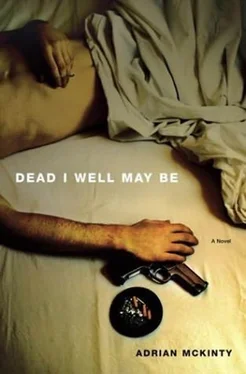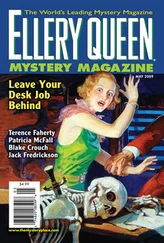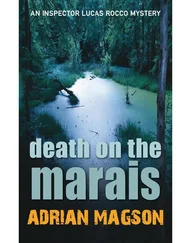Ben Franklin famously put the limit of fish and houseguests at three days, and his mates were mostly Quakers and gentlemen. I’d been there nearly two weeks. Ratko wouldn’t throw me out and he liked having me around but finally the missus was too much: nagging him all night and all day and eventually the poor love cracked, got off his fat ass, packed sandwiches, went hunting, came back blitzed and singing and saying that he’d found me a place.
Ratko knew a Russian guy who happened to be pals with a Jamaican guy who happened to be the super of a building they were doing over on Lenox and 125th. They wanted people in there to keep crack addicts and other miscreants out during the makeover and I could probably live rent-free for a month or two till I got my bearings.
Ratko filled me with food, drove me over at paramedic speed in his Hyundai, talked like mad so I wouldn’t notice all the black people, helped me up the stairs, gave me the key, my hundred dollars back, a hearty handshake, and ran away before I could refuse…
I looked around. The place was abominable, but I was only there two or three weeks. That’s how long it took for Ramón to find me. But you get the picture: vermin, roaches, and a hole in the bathroom that allowed you to see into two floors beneath you. No electricity, but by some miracle there was cold-water plumbing. The building had six stories, and they had a person in an apartment on each floor. Their job was to keep the homeless out of there while renovations were taking place, and it wasn’t too hard a task. The guy prowling the second floor was a huge Jamaican bruiser from some particularly evil part of Kingston who scared the bejesus out of most mortals. He had a shotgun and he’d plugged someone already and the word had gotten round. Harlem had plenty of derelict buildings, so it made sense to go to an easier place.
Nowadays, Lenox Avenue looks like an ok sort of street and it might be hard to believe it ever was the way I say it was. But back then, I promise you, it was a murder picture. Every other building was a burnt-out graffitied shell. Garbage all over the streets, and people made campfires within the buildings to keep warm. Every floor smelled terrible and, just like in the days of Elizabethan London, you threw your shit out the open hole that should have been a window. The windows weren’t boarded up, because people had ripped down the plywood for furniture and the more shortsighted or desperate simply burned it.
I’m sure it wasn’t always thus. I might have been living on the same street as the late Langston Hughes or Duke Ellington and for all I bloody knew Ralph Ellison could have been that old, sophisticated-looking guy at the bodega, but it seemed unlikely. The street sanitation was a disgrace, the architecture of the buildings postapocalyptic. It was Belfast, circa 1973, except here there was no civil war as an excuse for the calamity.
There wasn’t much to do, either. No safe bars, no movie theaters. In fact, around here the most important landmark was the Apollo Theatre, but you’d be the brave white boy up there on a Saturday night in the autumn of 1992.
And speaking of Apollo, patron of the Muses, true, but also guardian of prophecy and the future, I knew what was going to happen. What was inevitable the minute I stepped off the GWB. I could see it in my mind’s eye, I could see it, I could feel it, but I knew I had to bide my time. I had to lie low. Ratko could know that I was back in New York City, but he was to be the only one. Ratko could keep his mouth shut. Did others know I’d escaped from Mexico? I doubted it. The guards saw me fall into the swamp and not come out. So if Sunshine ever checked, he’d believe the guards, and even if rumors reached him and Darkey that I was somehow alive, why give credence to these paranoid reports? No, they didn’t know anything. They were snug, safe in their beds. Eejit safe in their eejit beds.
So I had a place, I was incognito, and I figured if you couldn’t speak Serbo-Croat and weren’t part of a gossipy little Upper Manhattan Slavic circle, you didn’t know I was here. I was getting my shit together, making plans, but before I could do anything big I really had to do something about my leg. I wasn’t having nightmares. No phantom limb itches or anything like that, but I was walking too slowly with my crutch, and going up a flight of stairs was like Scott’s return from the Pole.
Now, lucky for me I wasn’t a million miles away from somewhere I could get help. For if you keep walking on 125th Street you’ll eventually get to the Triborough Bridge and the East River, but before that, if you make a right wheel, conveniently enough there’s a foot hospital. The New York College of Podiatric Medicine. The hospital will give you an artificial foot to stick over your stump and the physical therapists will show you how to walk with that foot, through weeks, sometimes months, of training. They’ll give you drugs, advice, support, and an optimistic glossy brochure with smiling Special Olympians. All this, of course, if you have insurance. If you don’t have insurance and your dancer-tragic-accident letter to Gene Kelly got no reply, you are not completely banjaxed, for as I discovered, there is another way:
You show up; you’re not an emergency case, so you have to wait. It can be a while, so bring a newspaper. It’s a presidential election year, so there’s plenty of reading, but you’re not an expert and it’s hard to tell the difference between the candidates-both would be Tories back home-so instead you read the sports section. There’s American football and real football and bizarre things like hockey on ice. The World Series is also coming up, but the New York teams aren’t in it. You read and read and you’re almost thinking of giving up, but finally a nurse takes your temperature and she’s so tired that she falls asleep while doing it. They give you a clipboard to which is attached a pink form. You fill in the details of an imaginary person and give his address and name and social security number. The nurse has already willfully suspended disbelief and leads you along a corridor to another man who might be a doctor. The doctor takes a look at your foot and shakes his head and says things like antibiotics and poor workmanship and where did they stitch you and you make a few things up in reply. The only accurate thing on your form is your blood type and he asks your blood type and you tell him and he asks if you’ve ever had any of a following list of complaints to which you reply no. He asks you to come back the following week and see some guy, but you hint that by next week you might not be at the address on your form. All this is part of a charade, for soon another man comes (an orderly, a nurse?) and leads you to a room that is brightly lit like a shoe store and packed with shoe boxes that contain feet. The feet are on little hinges and attach to your limb. Feet of every shape and size and skin color, but mostly black. Baby feet, size 15 feet, feet that stink of plastic and grease. He tries on several and gives you the best fit, which is an off-white. He says that really you should learn all about “stump management.” He tells you the line about the weeks of physical therapy, knowing full well that neither of you will see the other again. You put the foot in a plastic bag and carry it home. You practice in your apartment for hours until you’re chafed, bleeding, crying.
You practice going up and down stairs and you fall a dozen times. You look at your stump and the straps on the artificial foot and you just can’t believe it. The horror of it takes your breath away.
But you can’t live in that moment and you restrap yourself over the sores and the cuts, the skin-colored plastic of the foot going up over your stump, your hinged foot hanging there alien and ridiculous, until in jeans and socks and shoes it looks ok.
Читать дальше











